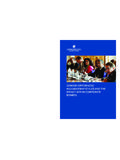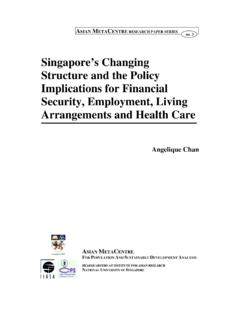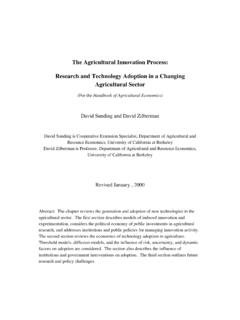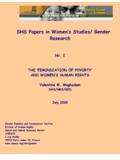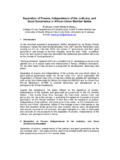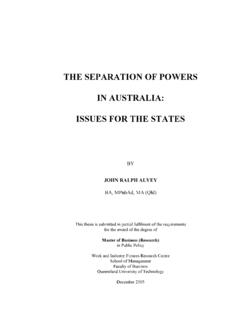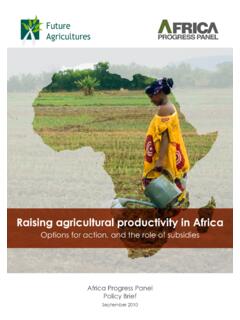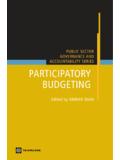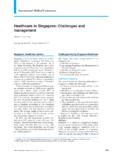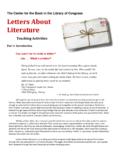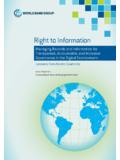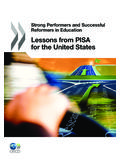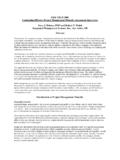Transcription of Better land access for the rural poor - cpahq.org
1 Better land access for the rural poor Lessons from experience and challenges ahead Lorenzo Cotula, Camilla Toulmin & Julian Quan Better land access for the rural poor Lessons from experience and challenges ahead Lorenzo Cotula, Camilla Toulmin & Julian Quan This paper was prepared under contract with the Food and Agriculture Organization of the United Nations (FAO). The positions and opinions presented are those of the authors alone and are not intended to represent the views of FAO. Better LAND access FOR THE rural POOR. LESSONS FROM EXPERIENCE AND. challenges AHEAD. Lorenzo Cotula, Camilla Toulmin & Julian Quan October 2006. Copies of this publication can be obtained from: SMI (Distribution Services) Ltd, Box 119, Stevenage, Hertfordshire SG1 4TP. Tel: +44 1438 748 111, Fax: +44 1438 748 844, Order number: 12532 IIED.
2 Citation: Cotula L., Toulmin C. & Quan J., 2006. Better LAND access FOR THE rural . POOR. LESSONS FROM EXPERIENCE and challenges AHEAD. IIED, FAO. ISBN: 1-84369-632-0. Cover photos, clockwise from top: Farmer with harvested wheat, Cochabamba, Bolivia. Sean Sprague/Still Pictures Worker rubber tapping tree, Indonesia. Mark Edwards/Still Pictures Woman harvesting wheat, Ghiraltar, Tigray, Ethiopia. Sean Sprague/Still Pictures Design: Smith+Bell Printing: Russell Press Printed on: Greencoat Velvet 200 gsm and Greencoat Velvet 100 gsm ACKNOWLEDGEMENTS. This paper was prepared by the authors for the Food and Agriculture Organization (FAO). It was presented at the International Conference on Agrarian Reform and rural Development (ICARRD), organised by FAO and held in Porto Alegre, Brazil, in March 2006. The paper benefited from input from the FAO Land Tenure Service/ rural Development Division from research design through to helpful comments on earlier drafts of the paper.
3 Special thanks to Paul Mathieu and Paul Munro-Faure for reviewing several earlier drafts of the paper. Thanks also to Harold Liversage and Audrey Nepveu at IFAD and to James Mayers at IIED for their helpful comments and suggestions. International Conference on Agrarian Reform and rural Development (ICARRD). CONTENTS. EXECUTIVE INTRODUCTION ..5. I. access TO LAND AND POVERTY REDUCTION ..7. A. access TO LAND AS A BASIS FOR SOCIO-ECONOMIC. B. access TO LAND AND AGRICULTURAL C. access TO LAND AND POVERTY REDUCTION STRATEGY. PAPERS ..11. II. LAND REDISTRIBUTION ..13. III. SECURING LAND A. THE ROLE OF LAND MARKETS IN IMPROVING access . TO LAND ..23. B. WOMEN'S LAND C. SECURING LOCAL RESOURCE RIGHTS IN FOREIGN INVESTMENT. PROJECTS ..28. D. PROTECTING THE RIGHTS OF INDIGENOUS PEOPLES ..31. E. SECURING THE RESOURCE RIGHTS OF PASTORAL GROUPS 33.
4 F. CONCLUSIONS ..39. CASES CITED ..43. EXECUTIVE SUMMARY. This study highlights lessons from recent policy, law and practice to improve and secure access to rural land for poorer groups. It focuses on Africa, Latin America and Asia, while also referring to experience from Central and Eastern Europe and the Commonwealth of Independent States. The study examines the links between land access and poverty reduction, shifting approaches to land reform, different means to secure land rights and to achieve more equitable land distribution, the particular vulnerability of certain groups to losing their land rights, and the role of addressing land rights within conflict resolution and peace building. It concludes with broad recommendations for protecting land rights of poorer and more vulnerable groups. Land is an asset of enormous importance for billions of rural dwellers in the developing world.
5 The nature of property rights and their degree of security vary greatly, depending on competition for land, the degree of market penetration and the broader institutional and political context. The picture is hugely diverse and complex within and between countries and regions. Nevertheless, some general trends and common challenges can be identified. Although there are significant differences between and within countries, pressure on land is set to increase over future decades, given the impacts of continued population growth, urbanisation, globalisation of markets and activities, international investment flows, trade negotiations and climate change. As a resource becomes scarcer and more valuable, those with weak rights to this resource will tend to lose out. In the case of land, particular groups tend to be more vulnerable to such dispossession, including the 1.
6 Poor, those in peri-urban areas, indigenous people, women, those relying on common property resources, and those in areas of conflict. Addressing the land access and tenure security needs of these groups is crucial for social justice, political stability and peaceful co-existence. Attention to securing land rights is also important for promoting rural development, as it helps create conditions that encourage local and foreign investment. Policy dialogue at all levels should recognise the importance of secure land rights for sustained development, growth and peace. There is a need to identify ways to mainstream more systematically land access in PRSPs and in agricultural and economic policy at national level, and in the MDGs at global level, so as to provide concrete strategies for socially inclusive economic development.
7 The land policy agenda must be driven and owned at the individual country level and, whilst lessons of good practice can be shared across countries, simple one-size-fit-all solutions are unlikely to help. Reform requires sustained and long-term commitment from governments and development agencies. Successful land reforms ultimately depend upon strong political power allied to land reform movements and prepared to challenge resistance by vested interests. Promoting equitable access to land requires dynamic and effective implementation of ongoing land redistribution programmes, and a systematic assessment of the appropriateness of the institutional arrangements used in those programmes. Securing land rights requires developing and implementing policy, legal and practical tools that are appropriate for different groups and circumstances, and that pay special attention to the specific land tenure security needs of poorer and more vulnerable groups.
8 Supporting democratic land institutions and land administration systems that are decentralised and problem centred, and that make links with existing indigenous and customary mechanisms for managing land; and improving access to effective systems of land dispute resolution, including courts, alternative dispute resolution and customary procedures. Capacity building is critical for improving access to land and for effective land administration, both in state institutions and in civil society. Lack of capacity in government agencies, lack of legal awareness, and economic, geographic and linguistic inaccessibility of state institutions all contribute to limit the outreach of state policy and legislation in rural areas. This calls for supporting opportunities for professional development, lesson sharing and capacity building in centres of excellence and through learning networks of policy makers, practitioners and civil society.
9 Capable and well- informed civil society organisations can play an important role in informing, and in 2. providing checks and balances, on government decision-making and the development and implementation of land policy and law. Exchange of experience through networks of civil society organisations, and analysis and research linked to action planning can also promote the development of appropriate land policies. 3. 4. This was among my prayers: a piece of land not so very large, where a garden should be and a spring of ever-flowing water near the house. Horace, 30 BC. In many parts of Africa, rural dwellers find themselves in a period of uncertainty a time of hesitation between two systems and two periods: a time not long ago when customary principles were the point of reference, and an uncertain future, in which new rules and norms are inevitable.
10 Mathieu et al. 2003. INTRODUCTION. This study analyses the links between land access and poverty reduction, and highlights lessons from recent policy, law and practice to improve land access for poorer groups in different parts of the world. It reviews land access issues in Africa, Latin America and Asia, focusing on access to rural land in those three regions, while also referring to the major land reforms that have taken place in the transitional economies of Central and Eastern Europe and the Commonwealth of Independent States. It examines shifting approaches to land reform, different means to secure land rights and to achieve more equitable land distribution, the particular vulnerability of certain groups to losing their land rights, and the role of addressing land rights within conflict resolution and peace building.
